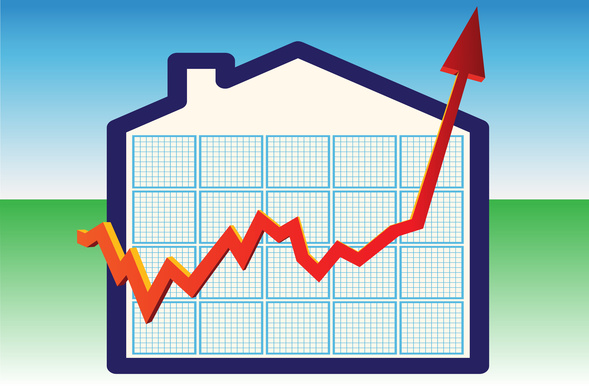It has been almost six years since the bubble burst in the U.S. housing market, sending the entire country spiraling into the worst economic crisis since the Great Depression. But now, maybe, just maybe, things are beginning to look up.

© Paul Fleet - Fotolia.com
Most home purchases are made in the spring. This is because it coincides with when kids are getting out of school and have to go back to school in the fall. Most families want to be in their new homes and registered with their new school districts in time for the school year to start. And so the prime buying time in the US, for a long time, has been from late April to late July.
And so now for the good news'. Statistics are showing that this particular spring season is looking like it will be the strongest in the six years since the market crash!
April year-to-year comparisons between 2011 and 2012 show that sales are up by over 10% from a year ago, and these are predicted to be up by as much as 13% by year's end according to the National Association of Realtors. Many cities which saw a severe market correction are showing signs of stabilization, while many others are showing signs of market growth.
Realtors in certain markets are reporting bidding wars are back for the first time in eons in many prime locations, and neighborhoods and buyers are no longer sitting on the fence waiting for the market to bottom out. The feeling across the country is the worst of the crisis is over and those who have been waiting on the sidelines to make a purchase are now buying up homes more quickly than even just a few months ago.
'We have more buyers than we have houses to sell,' said April Bolin, a realtor in Riverside, California, considered one of the epicenters of the U.S. housing crash.'We have multiple bids all the time. I recently sold a property that had 10 offers in three days,' Bolin said.
'We're guardedly optimistic,' said Ron Phipps, a broker at Phipps Realty in Warwick, Rhode Island, a state hit hard by the 2007-09 recession. 'We've seen some really good signs. We just want them to be sustained.'
One of the largest hurdles to the recovery is the oversupply of housing. At one point there was almost a twelve-month backlog of homes for sale compared to active buyers. This has dropped to a six-month supply, which is more in line with a normal housing market and consequently, another sign of a recovery in progress.
Some of the cities looking at a potential inventory shortage were among those hardest hit by the crisis, including Phoenix and Miami, because investors have already swooped on many homes. In Sacramento, California, the supply of homes has shrunk to just 1.1 months' worth, according to data firm RealtyTrac.
Two of the factors fueling this recovery are low interest rates and the availability of money. Lenders, especially those backed by FHA, are slowly loosening their guidelines for loaning money, which were squeezed super-tight back when the market crashed. For the past several years, even though interest rates were low, no-one could qualify for the loans so the only people buying were those who could afford to do so in cash. Now the average person is having a far easier time getting approved for an FHA loan. What's more, because most mortgages only require as little as 3.5% down, a growing number of people are able to get into homes again without having to save up first.
Bank of America Chief Executive Brian Moynihan told investors last week that his bank is recruiting more loan officers as it looks to recover its lost market share.
Meanwhile, Wells Fargo, which now sells more than one in three U.S. mortgages, is also looking to grow.
'Now, we fully expect some bumping along here as the national economy has its own fits and starts and the like. But we see some real continued improvement,' Mike Heid, head of Wells Fargo's mortgage unit, told investors last week.
Wells Fargo wrote $129 billion in mortgages in the first quarter, up from $120 billion in the fourth quarter and $84 billion a year earlier.
0 komentar:
Posting Komentar